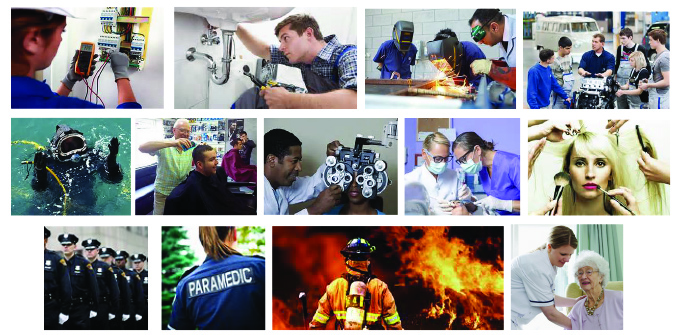By Jeanne Steffener, Tulalip Tribes Higher ED
Today’s economy is demanding a better educated workforce and jobs now a days require more complex knowledge and skills than jobs in the past. The opportunities are available to acquire the knowledge and skills needed in today’s workplace. The training can range from the hand trades and crafts to retails, health care training, energy options and information technology. Vocational training, in the past has referred to such fields as automotive services technicians, carpenters, chefs, cosmetology, electricians, pipefitting, CDL truck drivers, welding, divers etc. However today, you can pretty much find training in any specialty area you want to pursue. Craft vocations are usually based on manual or practical activities and are traditionally non-academic but are related to specific trades or occupation.
Vocational training can give applicants an edge in job searches since they already have the certifiable knowledge they need to enter the field. A student can receive vocational training either in high school, at a community college or at trade schools for adults. Other alternatives are two (2) year career training schools, sometimes called technical schools, vocational schools or trade schools can allow students earn associates degrees, certification, certificates or diplomas.
Vocational training motivates students to get involved in their learning by engaging them in problem-solving activities that build knowledge; provide hands-on activities that enable them to apply knowledge; brings students and teachers together in a collaborative learning setting who share similar career/vocational interests.
Today, it is all about skills ….the practical application of knowledge. A lot of employers want to know what you can do, not just want you think. Therefore, trade and technical skills are among some of the world’s most marketable talents. And in reality, for many occupations, the only way to acquire the skills and qualifications is to complete a career-driven program. According to the U.S. Bureau of Labor Statistics (http:www.bls.gov), 14 of the 20 fastest growing occupations only require an associate’s degree or less. Also, 18 of the 20 occupations projected to have the most new jobs by 2020 will have the same minimal qualifications. By 2020, around 55 million job openings may be created of which only 3 out of 10 will require a two-year or some college.
If you want to make preparations for the new jobs being created in the near future, check out some of the training availabilities. The job possibilities for someone with additional training and skills are limitless. Please call Higher ED staff at 360-716-4888 or email us at highered@tulaliptribes-nsn.gov to find out more information.

